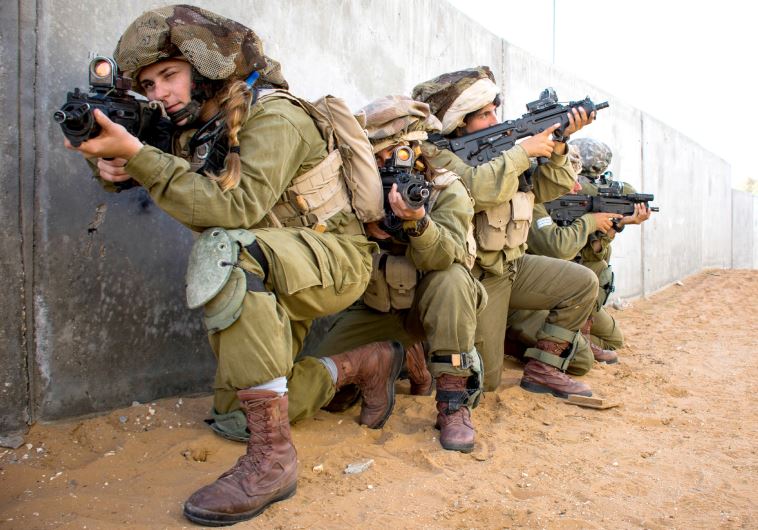In Plain Language: Lady angels in green
Opposition to women serving in the army, particularly in combat roles, is long-standing, and not only in haredi circles.
 Female combat soldiers in the mixed-gender Caracal Battalion train in urban warfare.(photo credit: IDF SPOKESMAN’S UNIT)Updated:
Female combat soldiers in the mixed-gender Caracal Battalion train in urban warfare.(photo credit: IDF SPOKESMAN’S UNIT)Updated: